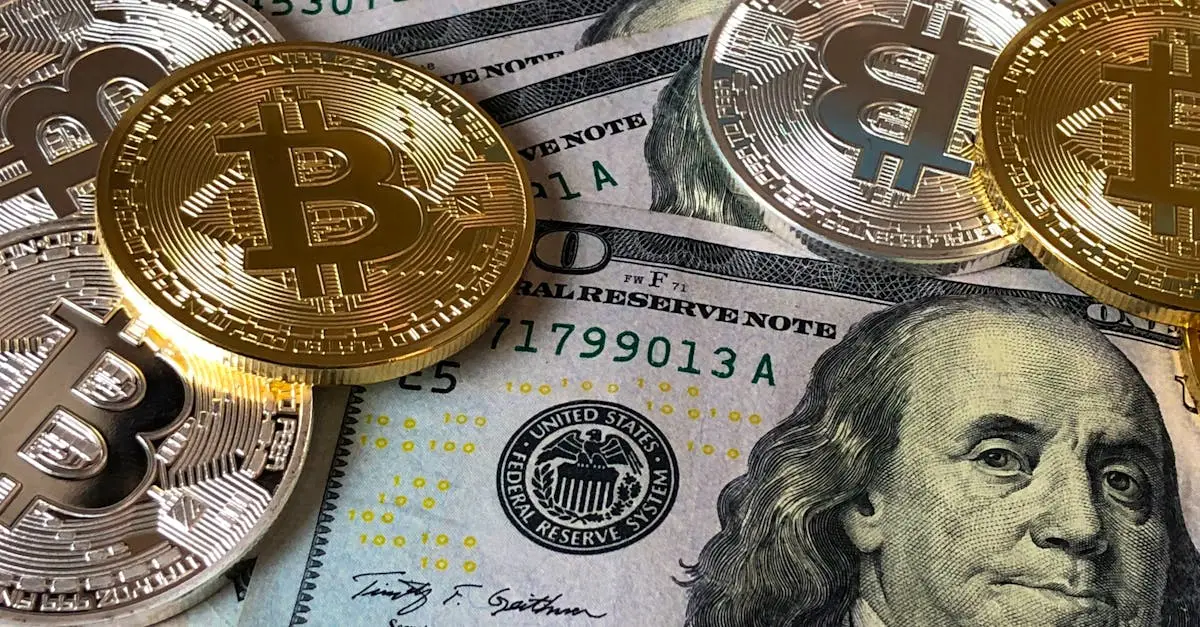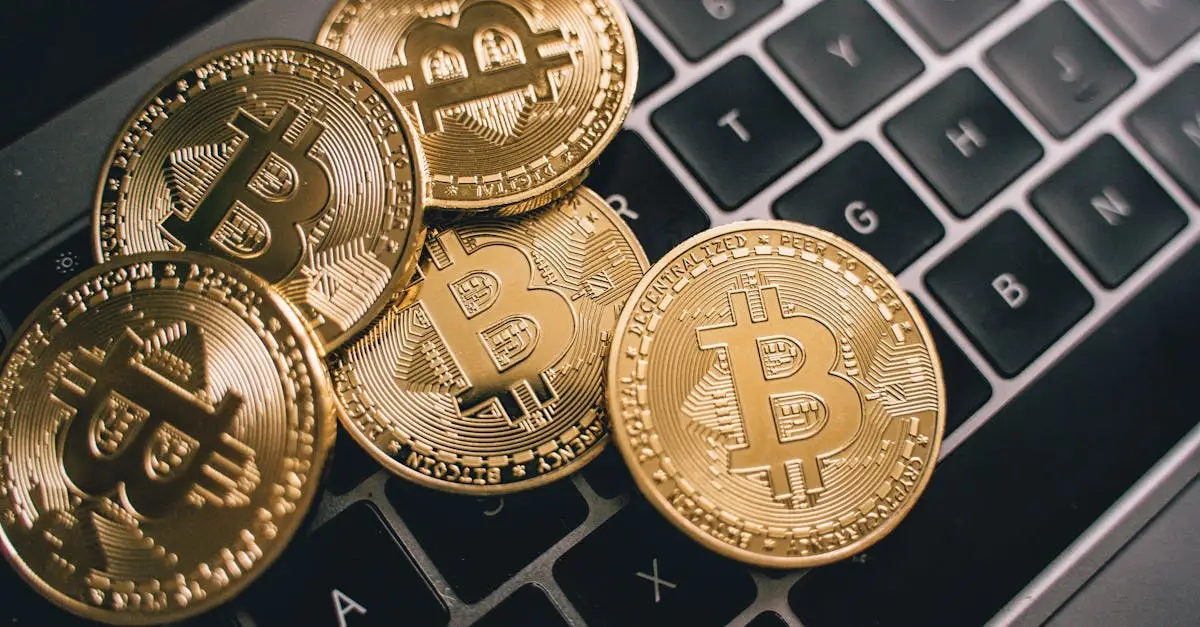Decentralized Finance: Revolutionizing the Crypto Landscape
Decentralized finance, commonly known as DeFi, has emerged as a groundbreaking trend reshaping the crypto landscape. This innovative approach leverages blockchain technology to decentralize traditional financial systems, providing opportunities for secure transactions without the need for intermediaries. As the world becomes increasingly digital, DeFi is poised to transform the way we think about finance, offering new possibilities for efficiency, security, and accessibility.
Understanding the fundamentals of blockchain and its decentralized nature is crucial to grasp the essence of DeFi. Blockchain serves as the underlying technology that enables secure, transparent, and immutable transactions. By operating on a decentralized network of nodes, blockchain ensures that no single entity has control over the data, enhancing trust and reducing the risk of manipulation. This revolutionary technology forms the basis for the development of various applications, including crypto currencies and smart contracts.
- Exploring the Impact of Blockchain Technology on Cryptocurrencies
- Innovative Uses of Blockchain Beyond Crypto Transactions
- Challenges and Opportunities for Blockchain in the Crypto Market
| Blockchain Features | Benefits |
|---|---|
| Decentralization | Enhances security and eliminates single points of failure |
| Immutability | Ensures the integrity of transactions and data |
The utilization of smart contracts in the crypto space has revolutionized the way agreements are made and enforced. Smart contracts are self-executing contracts with the terms directly written into code. These contracts automatically enforce and facilitate the negotiation or performance of an agreement, cutting out intermediaries and reducing the risk of fraud. In the world of DeFi, smart contracts play a significant role in automating financial processes and enabling innovative financial products and services.
Integrating blockchain technology in healthcare for secure medical records management is another promising application of DeFi. The healthcare industry faces challenges related to data privacy, security, and interoperability. By leveraging blockchain, healthcare providers can securely store and share patient information while ensuring data integrity and confidentiality. This transformative approach empowers individuals to have greater control over their health data and streamlines processes across various healthcare systems.
Challenges and opportunities arise when considering the use of blockchain for voting systems. While blockchain has the potential to enhance transparency, security, and accessibility in voting processes, there are concerns regarding scalability, privacy, and regulatory compliance. Addressing these challenges can pave the way for more inclusive and secure electoral systems, offering cryptographic solutions to safeguard the integrity of democratic processes.
- Understanding the Role of Blockchain in DeFi Ecosystem
- Smart Contracts and Automated Finance in Crypto Space
- Risks and Benefits of DeFi Applications in the Crypto Industry
| Voting System Challenges | Opportunities |
|---|---|
| Scalability | Enhanced transparency and auditability |
| Privacy concerns | Increased accessibility and voter participation |
As DeFi continues to gain momentum, the rise of Initial Coin Offerings (ICOs) has become a prominent method for fundraising within the crypto community. ICOs enable projects to raise capital by issuing tokens to investors in exchange for cryptocurrencies. This crowdfunding model has provided startups with a new way to access funding, bypassing traditional financial institutions and democratizing the investment landscape. However, regulatory frameworks play a critical role in ensuring investor protection and market integrity in the evolving crypto space.
Understanding the Role of Blockchain in DeFi Ecosystem
Blockchain technology has revolutionized many industries, with its impact extending into the world of Crypto. Cryptocurrencies, powered by blockchain, have gained immense popularity and are reshaping the way we perceive traditional finance.
When discussing Crypto and its underlying technology, it’s essential to highlight the significance of decentralized finance (DeFi) ecosystems. DeFi leverages blockchain to provide transparent and efficient financial services without the need for intermediaries.
One of the critical roles of blockchain in the DeFi ecosystem is smart contracts. These self-executing contracts facilitate secure and automated transactions, enabling users to interact directly with each other on the blockchain network.
The Advantages of Blockchain in DeFi
Blockchain technology provides several advantages within the DeFi space. Its decentralized nature ensures trustless transactions, where users can engage in financial activities without depending on a central authority.
Additionally, blockchain enhances security by utilizing cryptographic techniques to protect sensitive financial data. This heightened level of security reduces the risk of fraud and unauthorized access in the DeFi ecosystem.
The Future of Blockchain in DeFi
As the Crypto market continues to evolve, the role of blockchain in DeFi is poised for further growth. Innovations such as cross-chain compatibility and decentralized exchanges are pushing the boundaries of decentralized finance.
Furthermore, the integration of blockchain in lending, borrowing, and yield farming protocols is revolutionizing traditional financial services, making them more accessible and efficient for a global audience.
For a deeper understanding of how blockchain shapes the DeFi ecosystem, consider exploring the Understanding the Role of Blockchain in DeFi Ecosystem through insightful resources.
Smart Contracts and Automated Finance in Crypto Space
The world of Crypto. is revolutionizing finance as we know it. Smart contracts and automated finance are at the core of this transformation, offering innovative solutions and opportunities for individuals and businesses alike.
The Rise of Smart Contracts
In recent years, the adoption of smart contracts has grown exponentially in the Crypto. space. These self-executing contracts with the terms of the agreement directly written into code have automated processes and reduced the need for intermediaries, increasing efficiency and security.
Benefits of Smart Contracts
One of the key benefits of smart contracts in the Crypto. space is the elimination of third parties, reducing costs and potential risks. Additionally, smart contracts offer increased transparency, immutability, and faster transaction speeds compared to traditional contracts.
Automated Finance in Crypto.
Automated finance, also known as decentralized finance (DeFi), is another disruptive technology in the Crypto. space. DeFi applications use smart contracts to provide traditional financial services such as lending, borrowing, and trading without the need for traditional financial intermediaries.
The Future of Finance
The integration of smart contracts and automated finance in the Crypto. space is reshaping the future of finance. With increased security, efficiency, and accessibility, these technologies are democratizing financial services and expanding opportunities for global financial inclusion.
For more in-depth insights into smart contracts and automated finance in the Crypto. space, you can access top ebooks on the subject Smart Contracts and Automated Finance in Crypto Space.
In the fast-paced world of finance, Crypto has been a major disruptor, revolutionizing the way we perceive and utilize currency. Cryptocurrencies have gained immense popularity in recent years, with many investors and enthusiasts diving into the world of digital assets. This article delves into the risks and benefits of DeFi applications in the Crypto industry, shedding light on the opportunities and challenges they present.
Risks and Benefits of DeFi Applications in the Crypto Industry
Decentralized Finance (DeFi) applications have emerged as a promising alternative to traditional financial systems, offering greater accessibility, transparency, and efficiency. However, like any innovative technology, DeFi comes with its own set of risks and rewards. Understanding these dynamics is crucial for individuals looking to participate in the Crypto space.
The Benefits of DeFi
One of the key advantages of DeFi applications is their ability to eliminate intermediaries, enabling direct peer-to-peer transactions. This not only reduces costs but also enhances privacy and security, as users maintain control of their funds without relying on third parties. Additionally, DeFi platforms operate 24/7, allowing users to engage in financial activities at any time, anywhere in the world.
Another benefit of DeFi is the opportunity for financial inclusion. By leveraging blockchain technology, DeFi applications can provide banking services to unbanked populations worldwide, opening up a new world of possibilities for individuals who lack access to traditional financial infrastructure.
The Risks of DeFi
Despite the numerous benefits, DeFi applications are not without their risks. Due to the complex nature of decentralized systems, vulnerabilities can be exploited by malicious actors, leading to potential security breaches and financial losses. Smart contract bugs, price oracle manipulations, and governance issues are some of the common risks associated with DeFi protocols.
Moreover, the decentralized nature of DeFi means that there is no central authority to oversee or regulate transactions, increasing the likelihood of fraud and scams within the ecosystem. As a result, users must exercise caution and conduct thorough research before engaging with DeFi platforms to mitigate these risks.
Final Thoughts
In conclusion, DeFi applications represent a promising evolution in the Crypto industry, offering exciting possibilities for users seeking financial autonomy and innovation. However, it is essential to approach DeFi with a critical mindset, weighing the benefits against the risks to make informed decisions in this rapidly evolving landscape.
For further insights into the risks and benefits of DeFi applications in the Crypto industry, consider exploring Risks and Benefits of DeFi Applications in the Crypto Industry .
Frequently Asked Questions
1. What are DeFi applications in the Crypto Industry?
In the Crypto. industry, DeFi (Decentralized Finance) applications refer to financial services and platforms that operate on decentralized networks, using smart contracts to provide services such as lending, borrowing, trading, and earning interest without the need for traditional financial intermediaries.
2. What are the benefits of using DeFi applications?
Using DeFi applications in the Crypto. industry can offer several benefits, including:
- Increased financial inclusion for individuals without access to traditional banking
- Greater control over one’s financial assets and transactions
- Global accessibility without geographic restrictions
- Potential for higher returns on investments compared to traditional banking
3. What are the risks associated with DeFi applications?
While DeFi applications offer various advantages, they also come with certain risks, such as:
- Smart contract vulnerabilities leading to hacks or exploitation
- Market volatility impacting asset values and returns
- Regulatory uncertainties and compliance issues
- Lack of insurance or recourse in case of funds loss
4. How can users mitigate risks when using DeFi applications?
Users can take several steps to reduce the risks associated with DeFi applications in the Crypto. industry:
- Thoroughly research and choose reputable DeFi platforms with a solid track record
- Use secure wallets and implement strong security measures like two-factor authentication
- Diversify investments to spread risk across different assets or platforms
- Stay informed about market trends, regulatory changes, and security best practices
5. Are DeFi applications regulated in the Crypto. industry?
Currently, DeFi applications operate in a largely unregulated environment within the Crypto. industry, leading to regulatory uncertainties and challenges. Users should be aware of the potential legal and compliance risks associated with using DeFi platforms.
6. How can I learn more about DeFi applications and their impact on the Crypto. industry?
To delve deeper into DeFi applications and their implications in the Crypto. sector, you can explore resources from reputable sources such as the Coinbase Learn platform. Additionally, stay informed by following industry updates from trusted Crypto. news websites like CoinDesk or Decrypt.
Conclusion
The exploration of Crypto and its impact on the financial landscape has unveiled a world of possibilities for decentralized finance. Understanding the core principles of blockchain technology, cryptography, and smart contracts is essential in grasping the potential transformations that blockchain can bring to various industries beyond just cryptocurrencies. The rise of Decentralized Finance (DeFi) is revolutionizing the way we think about financial transactions and services, offering a glimpse into a future where traditional centralized systems may no longer hold sway.
With DeFi applications gaining momentum in the crypto space, the potential for streamlining processes, reducing costs, and enhancing security in financial transactions is immense. Smart contracts play a crucial role in automating agreements and ensuring transparency, while encryption and decentralization serve as pillars of protection against cyber threats and vulnerabilities. The adoption of blockchain in finance and supply chain management is paving the way for a more efficient, secure, and interconnected ecosystem, where intermediaries are minimized, and trust is embedded in the technology itself.
- The rise of DeFi applications is reshaping the financial sector by offering decentralized solutions that empower individuals to have more control over their assets and investments.
- Blockchain technology provides a secure and transparent framework that can revolutionize traditional financial systems by reducing fraud, increasing efficiency, and promoting financial inclusion.
- Smart contracts automate processes and agreements, streamlining operations and ensuring that terms are executed as programmed, without the need for intermediaries.
As regulatory frameworks evolve and governments become more involved in the crypto market, the balance between innovation and compliance becomes crucial. The challenges and opportunities presented by blockchain technology and decentralized finance require a delicate balance of fostering growth while ensuring security and accountability. It is imperative for stakeholders to collaborate and adapt to the changing landscape of financial technology to harness the full potential of DeFi while mitigating risks associated with its rapid expansion.
The future of finance lies in the hands of decentralized solutions that offer transparency, security, and efficiency in an increasingly digital world. The integration of blockchain technology in various sectors, from healthcare to supply chain management, showcases the versatility and transformative power of decentralized systems. With a focus on innovation, collaboration, and regulatory compliance, the Crypto landscape is poised for continued growth and disruption, driving towards a more inclusive and decentralized financial ecosystem for all.
- Embracing decentralized finance opens up a world of opportunities for individuals and businesses to access financial services and investments without the need for traditional intermediaries.
- The secure and transparent nature of blockchain technology fosters trust among users, promotes financial inclusion, and empowers individuals to take ownership of their assets and data.
- Continued research, education, and adaptation to regulatory changes are key to maximizing the benefits of DeFi while mitigating risks and ensuring the sustainable growth of decentralized finance.

I am Ethan Grant, a finance and cryptocurrency enthusiast with over a decade of involvement in the financial sector. My journey began with a passion for investment strategies, market analysis, and digital assets. Since then, I have dedicated my time to helping others navigate the complexities of the financial world. My insights are based on practical knowledge and a deep understanding of market trends, which allows me to offer valuable and reliable guidance.
Over the years, I have had the opportunity to work with several investment firms, which has further fueled my passion for cryptocurrencies and blockchain technology. I believe that digital assets have the power to promote financial independence, and today, I share my experiences and knowledge through articles, market analyses, and investment tips on Cryptofinanceinsider.
As an author, my commitment is to inform in the best way possible about the world of finance. I enjoy addressing topics in a straightforward and honest manner, which I believe resonates with both beginners and experienced investors. My goal is to make complex financial concepts more accessible to everyone.







